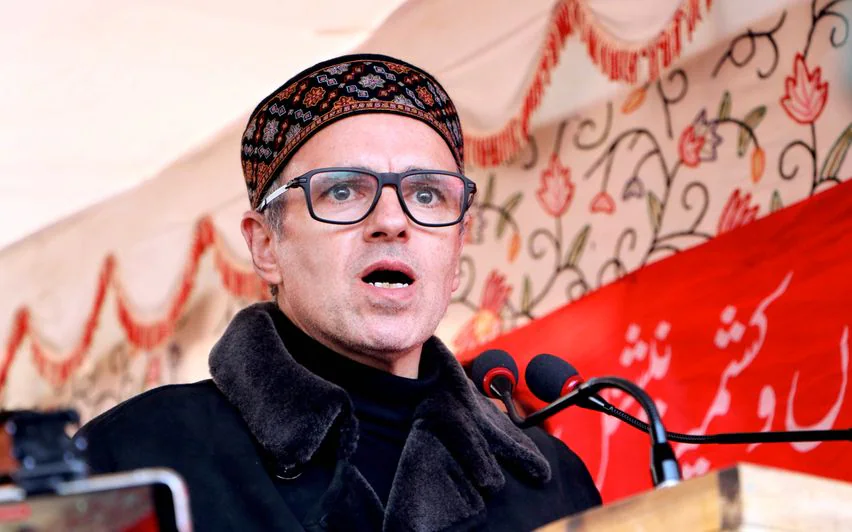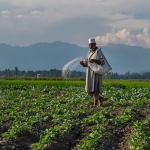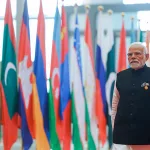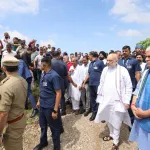As Omar Abdullah took the oath as Chief Minister of Jammu and Kashmir, the challenges awaiting him are complex, deeply rooted in the region’s intricate socio-political fabric. His party, the National Conference (NC), has historically emphasized unity and equitable governance across Jammu & Kashmir However, with Jammu and Kashmir’s new Union Territory (UT) status, Abdullah’s administration must navigate a fine line between fulfilling campaign promises and accommodating the constraints posed by limited autonomy. This balancing act, amidst a politically and culturally diverse landscape, will define the success and credibility of his leadership.
The National Conference has long sought to build a governance model that respects Jammu and Kashmir’s cultural diversity, attempting to bridge the divides among its various regions. Traditionally, the NC has worked to distribute representation equitably across Jammu, Kashmir, and Ladakh, offering each region a voice in state affairs. Omar Abdullah’s decision to allocate key cabinet roles to representatives from each area underscores this commitment, signaling an inclusive approach in line with the NC’s historical principles.
Yet, regional balance in Jammu and Kashmir is not merely about assigning posts; it requires a proactive strategy to address the specific needs, aspirations, and grievances of each area. The diversity within the Union Territory encompasses not only regional distinctions but also linguistic, cultural, and religious identities, each requiring unique consideration. While Kashmir remains a focal point due to its historical significance and demographic majority, Jammu and Ladakh also harbor significant political and cultural aspirations that cannot be overlooked.
Maintaining a sense of unity across these areas, without sidelining any particular community, will demand the Abdullah administration’s unwavering commitment and skilled diplomacy. For the NC, managing this diversity has always been a tightrope walk, and as Chief Minister, Abdullah must employ a nuanced approach to retain this regional harmony.
One of the most significant changes Omar Abdullah faces today is Jammu and Kashmir’s Union Territory status, which fundamentally alters the region’s governance structure. Under this framework, the UT’s administrative powers are somewhat constrained compared to a fully-fledged state. Matters concerning law enforcement, significant economic policies, and land laws are largely under central control, which reduces the Abdullah administration’s ability to act independently on pressing local issues. This unique situation demands a balance between Abdullah’s promises to his constituents and the central government’s overarching authority.
For example, one of the NC’s longstanding promises has been to promote local employment through job reservation policies that prioritize the region’s youth. However, given the current administrative setup, the Union government has a decisive role in job policies, particularly within public sector organizations. Similarly, land rights—an emotional and economic issue in Jammu and Kashmir—are also influenced by central directives. This means that even as the Chief Minister, Abdullah may face limitations in implementing localized policies that address these issues directly. His ability to navigate this will be central to his administration’s success.
Moreover, Abdullah must also contend with the dynamics of the Lieutenant Governor’s office, which holds substantial influence in the Union Territory’s governance. Coordinating effectively with the LG’s office will be essential for Abdullah to ensure that the NC’s agenda receives support rather than obstruction. This requirement for cooperation adds a layer of complexity to governance, particularly as the Chief Minister must walk a fine line between advocating for local interests and aligning with central policies.
During the campaign, Abdullah pledged to focus on youth employment, economic development, infrastructure growth, and regional security—areas that resonate deeply with the people of Jammu and Kashmir. However, fulfilling these promises under the constraints of UT status requires strategic thinking and diplomatic engagement with both central authorities and local stakeholders.
Unemployment remains a critical issue in Jammu and Kashmir, especially among the youth. A significant part of Abdullah’s mandate is to provide sustainable job opportunities within the region. However, creating jobs in the public sector is complicated by the centralized administrative setup. Abdullah will need to explore alternative routes to stimulate economic growth, such as encouraging private investments in the region’s tourism, agriculture, and handicraft sectors. Working closely with the central government to attract investors could open up avenues for employment, but Abdullah’s success here will depend on his ability to forge partnerships with various stakeholders.
Infrastructure is another area where Abdullah has vowed significant improvements. The government can make a strong impact on public services like healthcare, education, and road connectivity—especially in rural and remote areas. Abdullah’s administration can focus on infrastructure at the local level, targeting accessible healthcare and modernized educational facilities. However, such initiatives will need financial support from the central government, given the budgetary limitations of a UT. Ensuring that resources are allocated equitably across Jammu and Kashmir is a priority that will test Abdullah’s resource management skills.
Security is always a priority in Jammu and Kashmir, especially considering the region’s delicate socio-political climate. Abdullah’s promises to ensure safety and stability resonate strongly with a population that has endured prolonged periods of conflict. However, security in Jammu and Kashmir falls under the purview of the central government, limiting Abdullah’s direct influence over law enforcement agencies. Thus, his administration will have to work collaboratively with central security forces to implement strategies that promote peace while protecting the rights of local citizens. Effective communication between his administration and central security agencies will be essential to creating a secure environment that encourages economic and social growth.
The path forward for Omar Abdullah’s administration is neither straightforward nor without obstacles. The Union Territory status inherently curtails some of the traditional powers that previous Chief Ministers wielded, making Abdullah’s leadership in Jammu and Kashmir different from any past tenure. The political road ahead is complicated by the need for Abdullah to satisfy both his constituents and the central government, each with distinct expectations and demands.
A major factor in Abdullah’s potential success will be his capacity to foster constructive dialogue with the central government, particularly in areas where their cooperation is essential. Abdullah’s experience and legacy within the NC could work in his favor, providing a foundation for diplomatic engagement with New Delhi. His government’s ability to implement impactful policies, however, will depend on the central government’s willingness to collaborate and provide the necessary support for development projects.
At the same time, Abdullah faces an equally crucial challenge in maintaining the trust and support of his constituents. In recent years, Jammu and Kashmir’s residents have witnessed significant political and administrative shifts. Abdullah’s administration will need to demonstrate tangible progress on core issues, especially those related to youth employment and economic opportunities, to reassure the public of NC’s commitment to their welfare.
As Omar Abdullah embarks on his tenure as Chief Minister, he inherits the responsibility of guiding Jammu and Kashmir through a transformative period. His administration’s regional balance strategy and commitment to inclusive governance resonate with NC’s historical approach but require adaptation to the current Union Territory framework. While the path is fraught with challenges, Abdullah has the opportunity to define a new model of governance that respects both local autonomy and central collaboration.
Balancing the diverse aspirations of Jammu & Kashmir, navigating the complex dynamics of the Union Territory status, and delivering on promises amidst central limitations will test Abdullah’s leadership in unprecedented ways. Success will depend on his administration’s ability to engage all levels of government, foster regional harmony, and maintain the trust of the people. If he can accomplish these goals, Abdullah’s leadership could set a precedent for future governance in Jammu and Kashmir under the UT framework.
(Author is a Columnist and can be reached at: [email protected])








